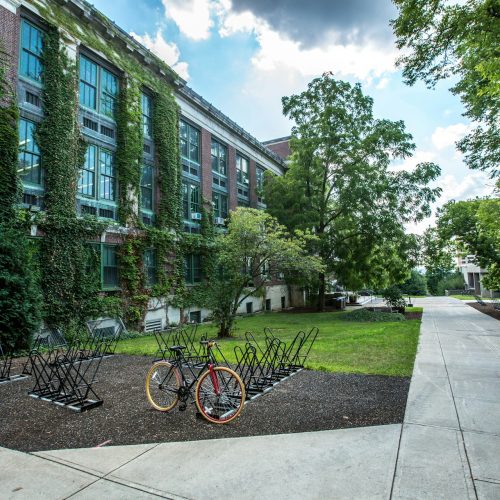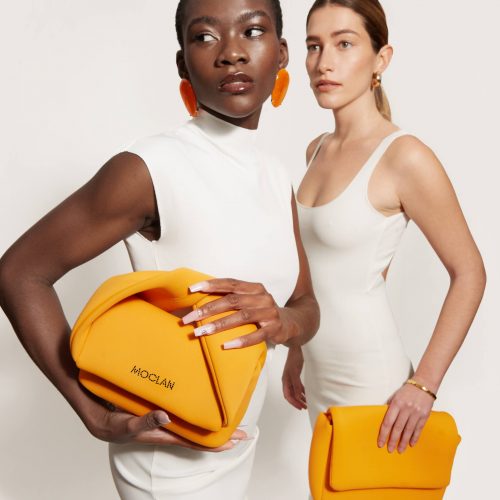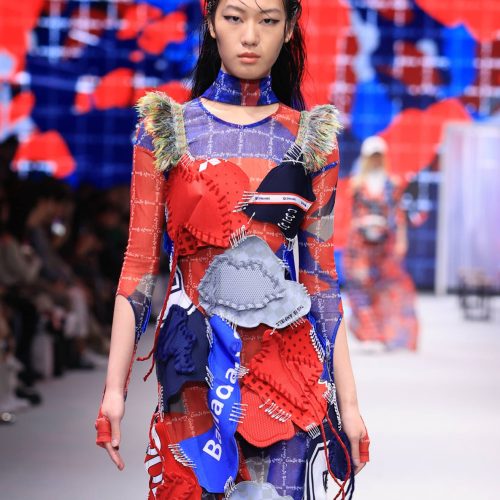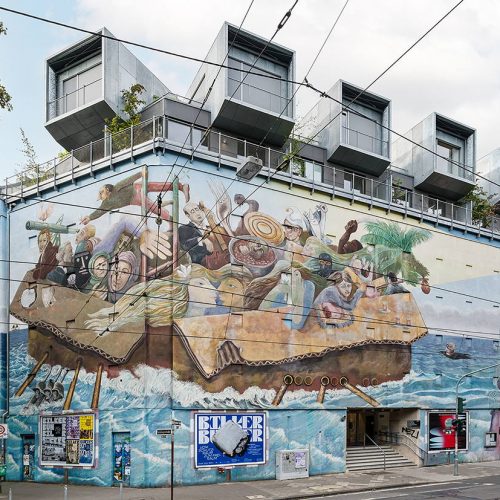Modtissimo celebrates a brave edition, reviving of sustainability
Portugal's main fashion and textile event, Modtissimo, closed the doors of its most courageous edition on September 24th. Exhibitors, organizers and visitors were satisfied with what may have been the most difficult edition due to the consequences of COVID-19. Luxiders Magazine was there.
An atypical year, an atypical edition, perhaps the bravest of all in its history. Like all face-to-face fashion events in the world, Modtissimo, the most important textile and fashion event in Portugal, had two options: to encourage itself and hold an “intimate” edition or, as most fashion and textile fairs of the world have done, to cancel the event and sit down and wait. The organizers, wanting to break with the trend and continue giving life to the economy, asked the exhibitors and they responded with a resounding “let's do it”. With this, the Portuguese fashion was shown as brave and faithful defender of its business. Their latest advances in terms of innovation and sustainability were well worth it. For a simple reason: European fashion, now more than ever, needs to rethink its supply chain and go back to betting on nearby suppliers, quality suppliers with the ability to adapt to all kinds of circumstances, even those generated by the coronavirus.
It was the first fashion event that we have attended in person since last March Europe and the whole world were paralyzed by COVID-19. With great care and enthusiasm, we entered the historic Alfándega building. Antiseptic gel in every corner, masks on faces and optimism, a lot of optimism. Who said that the fairs must stop? Being here is safer than being on the terrace of any bar.
“I have been working with the textile industry for more than 30 years. I have witnessed many crises of all kinds. In all these crises, whoever resists, who invests in their proposals, who changes their business model, comes out stronger ”- declared Manuel Serrao, general director of the fair, in an exclusive interview with Luxiders Magazine. “After the cancellation of the Première Vision fabric fair, many buyers confirmed that they would come to Modtissimo. This has been one more reason to celebrate the event (…) All those who have come have done so with a spirit of mission, in a way they feel like heroes”.
"There is something that Covid-19 has not managed to stop: the trend towards sustainability. It was already strong before the pandemic. Now it reborns even stronger" –says Manuel Serrao, General Director of Modtissimo.
As hightlight, ATP launched during the fair the Sustainable Fashion From Portugal project: With the motto “Fashion Industry’s New Chic”, the new project of the Portuguese Textile and Clothing Association wants to affirm the Portuguese industry as a center of innovation and excellence also in the areas of responsible production and the circular economy. The will extend over two years, with a set of promotional actions in strategic markets.
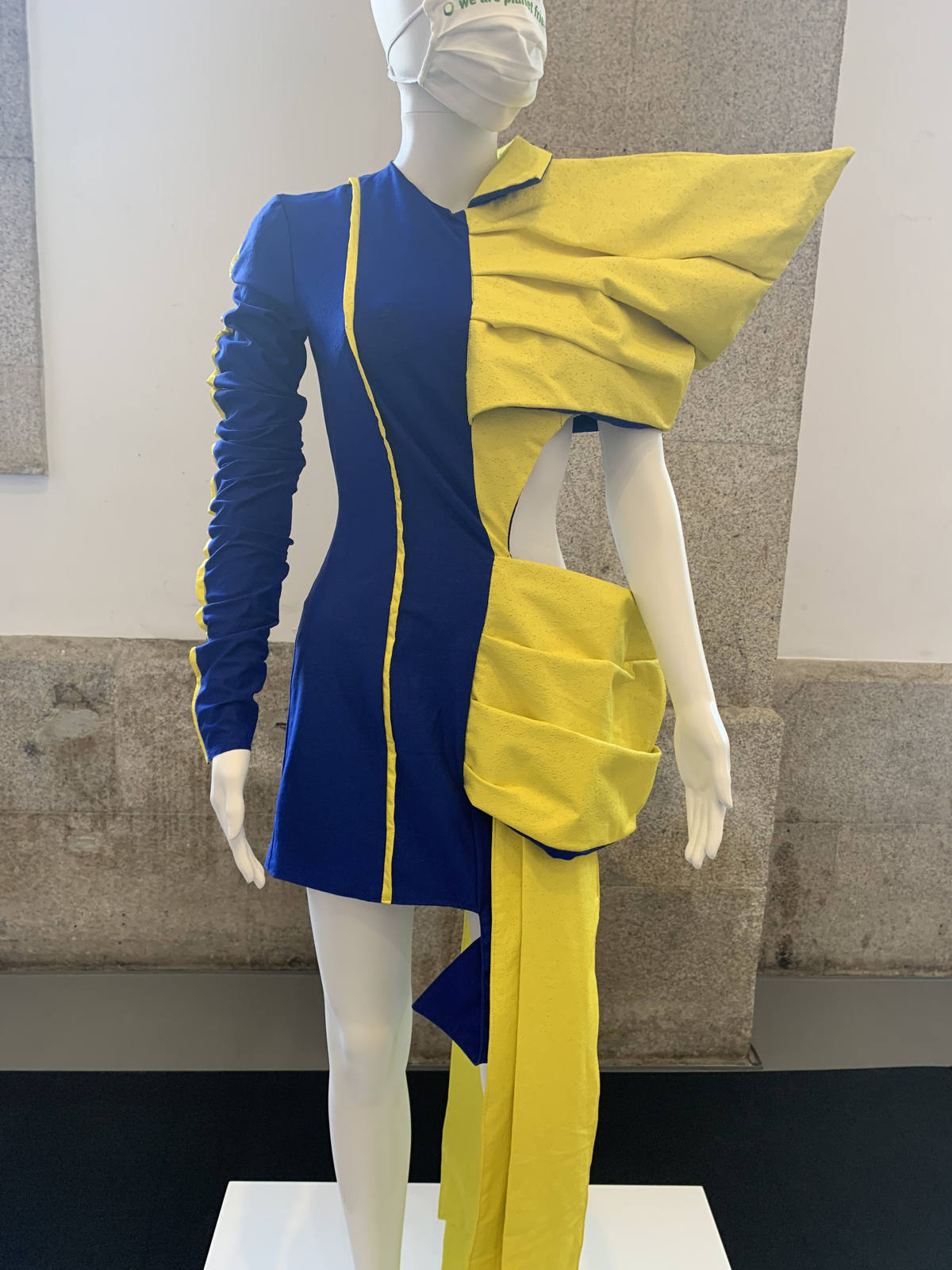
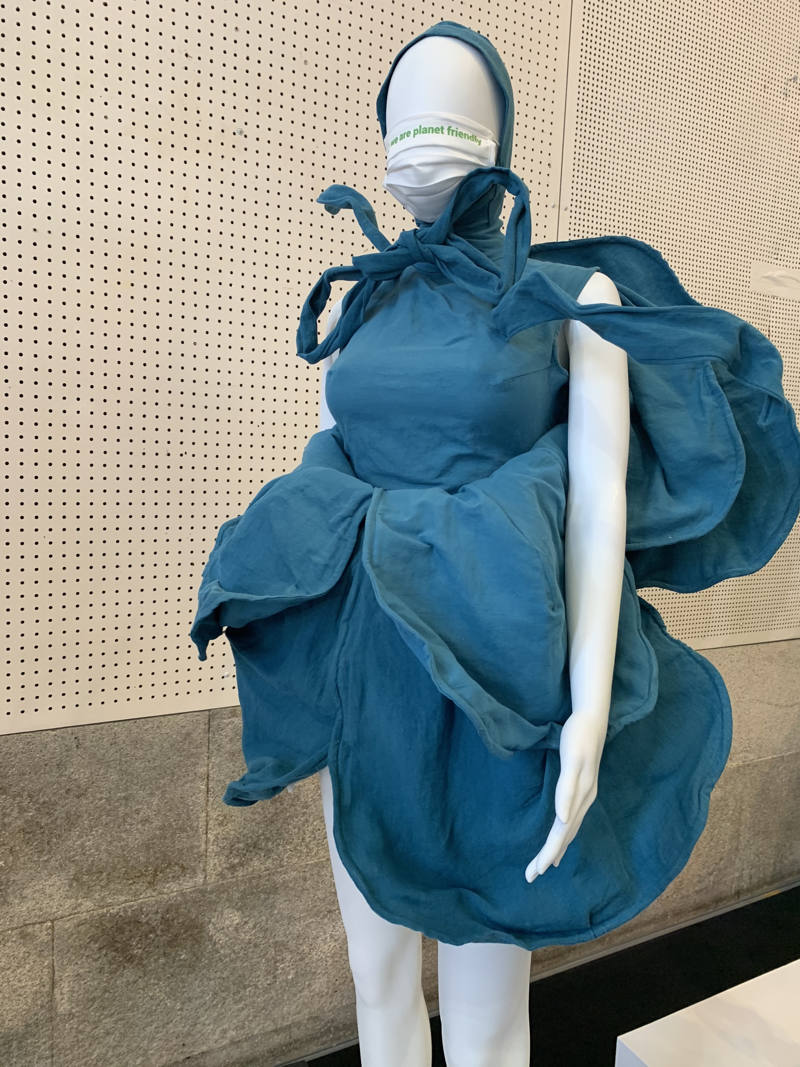
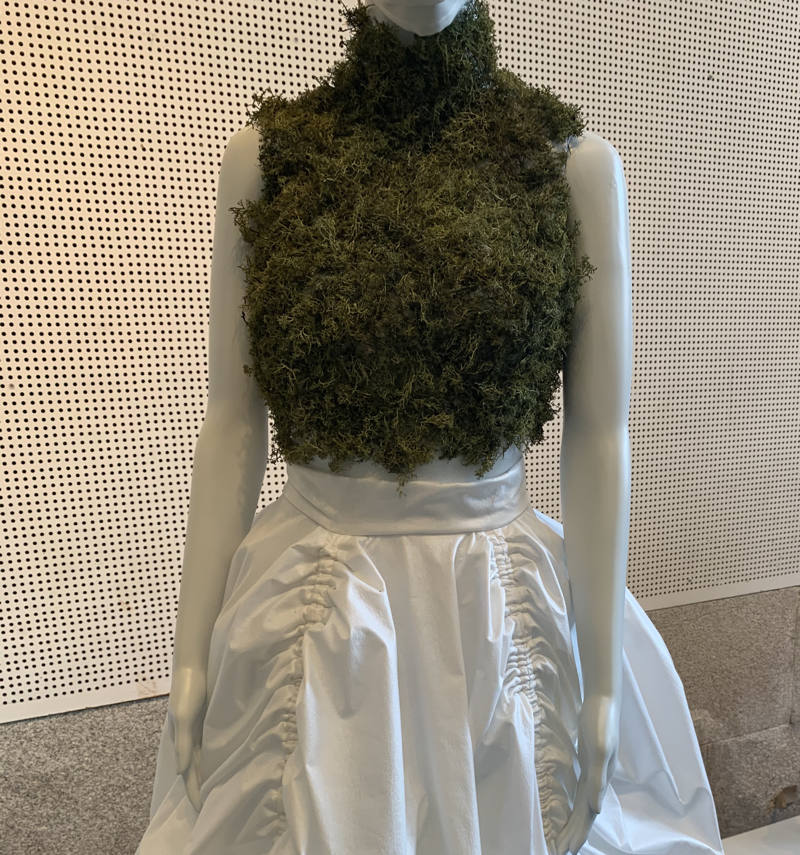
GREEN CIRCLE FORUM, VISIONARIES OF SUSTAINABILITY
Our first stop, of course, was Green Circle Forum. Focused on sustainability, the Green Circle presented fashion articles, home textiles, work wear and sportswear produced from sustainable raw materials and designed by the main Portuguese fashion designers. Showing that responsible production is not an obstacle to creativity, Green Circle presented in this edition more than 30 garments, a record number that shows the green wave that has swept the sector. “The companies' attention to responsible actions is growing, and the public is also more attentive, looking for alternatives. This year we have more home textiles, we have baby products, we have work wear, and we are finishing a cork yarn project, which we had already presented as a prototype”, says Paulo Gomes, curator of the Forum put together by CITEVE, Manifesto Moda and Associação Selectiva Moda.
Amazing visionary exhibition. Ana Salazar designed a garment created with Knitted fabric by A. Sampaio & Filhos - Têxteis that combines the excellent natural properties of merino wool with the added elasticity and mechanical strength provided by the polyamide fibre. The great innovation of this fabric is that the synthetic component was designed to be biodegradable in an industrial landfill environment (anaerobic decomposition).
We also loved Katty Xiomara’s garment, made of a macro-pique structure also by A. Sampaio & Filhos - Têxteis, in which a thin thread of organic cotton is used in a thick set, resulting in a comfortable knitwear for winter and with a structured look normally found in finer knits.
Roselyn Silva presented a total look in organic cotton printed with botanical printing made by Artfulness Unipessoal. The printing technique is from Medium Print, an advanced method of botanical printing. The article is innovative once each finished piece is unique and completely harmless to the environment.
Benedita Formosinho presented a bag made with BUNHO - indigenous ancestral material from Portugal, caught in the rivers and worked by artisans who tell a story of generations and PINATEX - innovative material from a fibre extracted from pineapple leaves, a by-product of Philippine agriculture. Both are natural and sustainable materials, very durable, do not contain animal products and chemicals and provide income to local communities. Bag developed following the principles of circular economy and cultural values.
João Feitor presented a garment produced by a fabric that comes from the junction of a cork industry waste with natural cotton fibre, incorporating the natural properties of cork in the jacquard fabric, such as anti-dust mites, antibacterial, fire resistance and sound insulation. The innovation is from Cork-A-Tex New Generation Yarns.
Welica Cordeiro presented a garment created with a knitted fabric made with Organic Wool, Biodegradable Polyamide and Tencel. ‘Organic wool’, means that the material has been farmed, without chemicals, including commonly used veterinary medicines such as preventative treatments against lice and flies and internal parasites. Amni Soul Eco is eliminated from the planet in about 5 years, whilst other fibres take decades to decompose. Like other biodegradable products, once it is in the landfill, breaks down into organic matter (biomass) and biogas; both of these can then be exploited as new environmental resources as well as being used to cogenerate electricity. Tencel cellulosic fibres of botanic origin define a new standard of sustainability and natural comfort. Maintain environmental balance by being integrated into nature's cycle.
Pe de Chumbo presented a garment made with wastes from the garment production, using unique handmade processes created by the company, such as wastes from the cutting process, yarns and fabric leftovers and other resources not used by the industrial textile process.
Maison Alexandrine presented a garment made with counter-glued fabric with 74% Biodegradable Naia Acetate, which comes from sustainable forests, using recycled solvents. It is from Polopiqué.
Dino Alves presented a garment made of an innovative composition of 3 alternative, eco-conscious natural fibres whose properties promote comfort, health and well-being, by RDD Textiles . The product has therapeutic benefits, such as anti-bacterial effect, UV protection, and cell regeneration. We note the softness to the touch, the quality of draping, lightness and silky shine. Soya fibre provides easy care characteristics and the hemp fibre the durability.
Gina Barro made a garment of B.CorkTM by Tintex Textiles. Coating focused on the concept of circular economy, developed based on the use of waste from the cork industry. Cork has ideal characteristics for clothing, conferring different types of characteristics such as waterproofness, breathability, high resistance, low density and thermal conductivity. This coating, with a cotton substrate, guarantees versatility at the aesthetic level since it allows cork waste to be dyed with the desired color that may or may not correspond to the color of the used substrate. A unique technology, where the used products are water-based, and the solvents do not have any toxic components. In this way, we combine the reuse of raw materials with the continuous concern for environmental preservation.
Manifesto Moda designed several garments. One garment was produced with 2 different materials, both naturally dyed: Hemp, the most ecological textile fiber in the world (is eco-friendly, hypoallergenic, breathable, thermoregulatory, durable and easy to care for) and Organic Cotton. They are both from Allcost, a company that stands out for their differentiation and their contribution to sustainability. Manifesto Moda also presented a garment produced with fabric “ECOLAM” by Lameirinho Indústria Textil. The yarn is produced from waste came from the production (cutting remains). They collect waste, which is shredded and spun, and reintegrated into the production process as a raw material. Also Manifesto Moda designed the Recircle collection, garment made with 100% cotton terry towels, made from 50% cotton waste from our process. The Recircle collection, aims the development of innovative and more sustainable terry based on principles of circular economy, involving the use of fibrous waste, allowing a more sustainable production with the reduction of waste generated in the process , the reduction in the amount of raw materials used and the consumption of resources, contributing to the SDG 2030 Agenda.
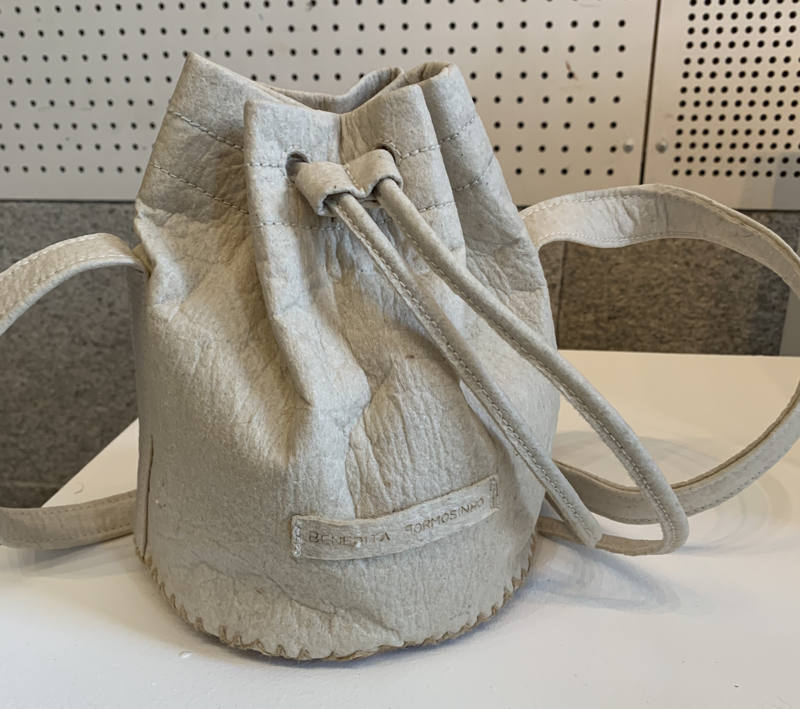
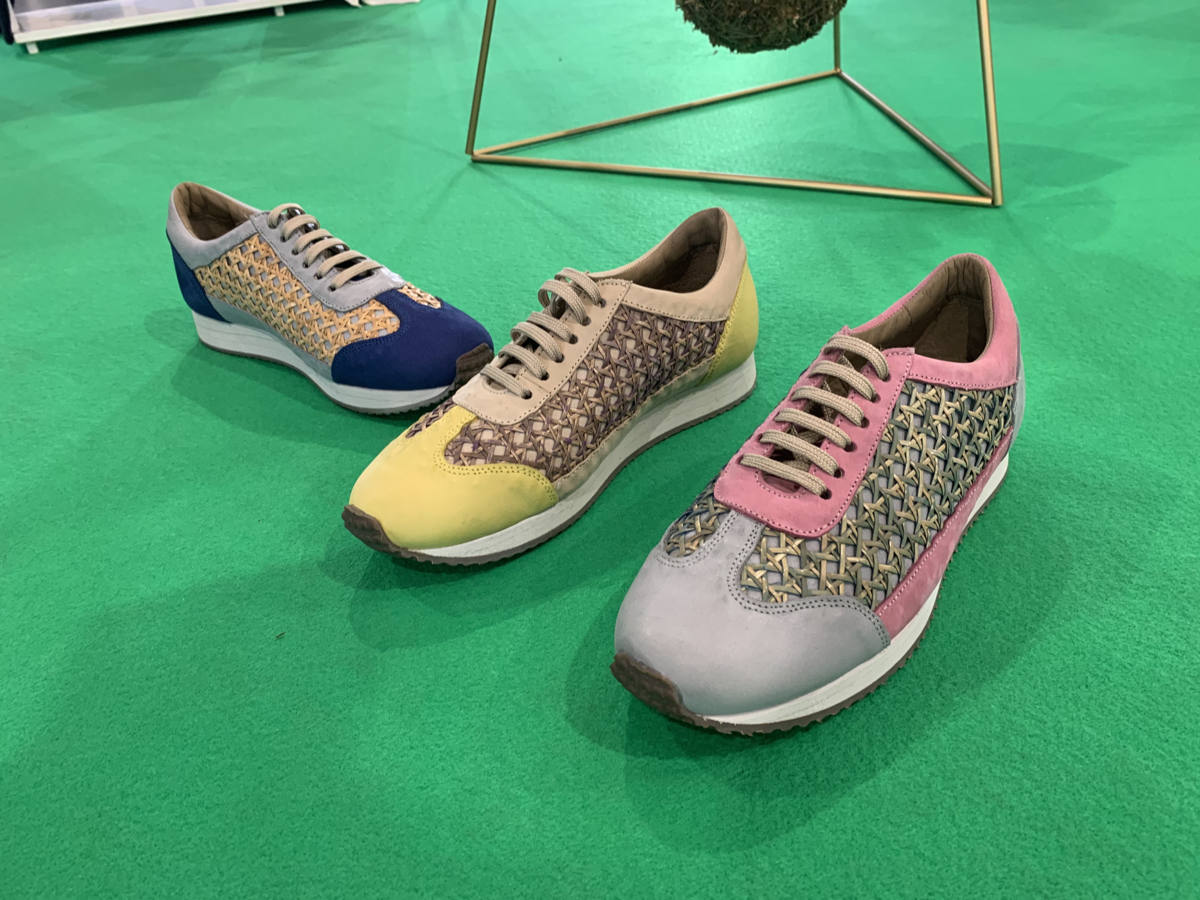
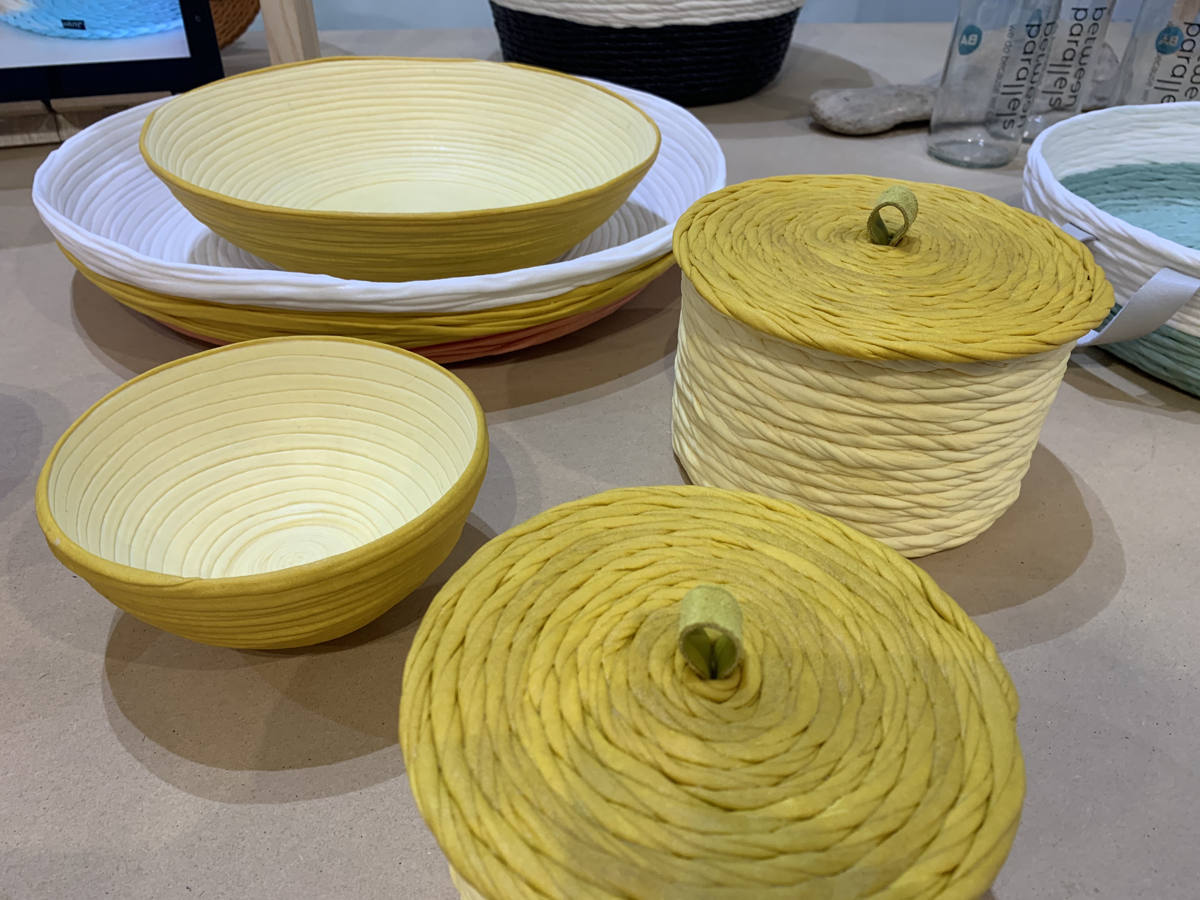
BETWEEN PARALLELS
Within the exhibition we were pleased to find a new area, starring the sustainable fashion association of Portugal (Associação para o Design e Desenvolvimento Sustentável) Between Parallels, and in which we found a curated selection of fashion items and decorative objects created under the baton of sustainability and a better world . Ablesia, Benedita Formosinho, Cru Loja, Elementum, Jinja, Marita Moreno, Vintage for a Cause or Mosgo are some of the brands that presented their latest collections under this sustainable platform, all with the same timeless, elegant, simple and unique line. All these brands are available at the sustainable concept store Cru-CoWork, in Porto.


